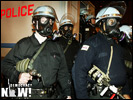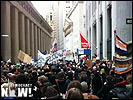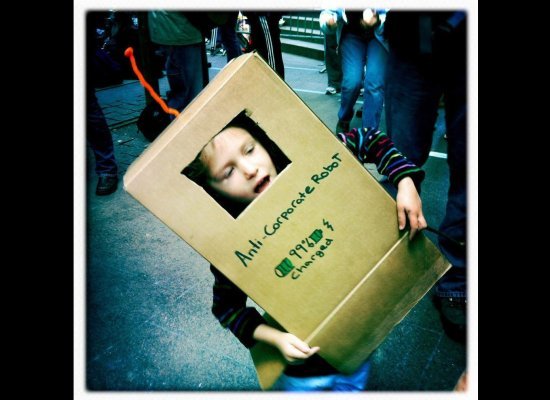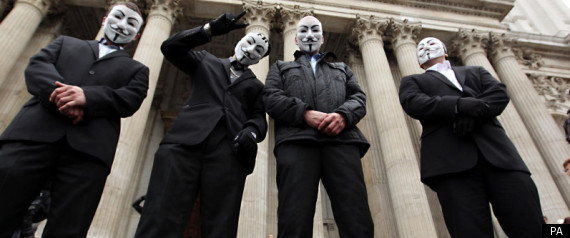 We host a discussion on policing and the Occupy Wall Street movement with Chuck Wexler, director of the Police Executive Research Forum, which helped organize calls among police chiefs on how to respond to the Occupy protests, and with Norm Stamper, the former police chief of Seattle, who recently wrote an article for The Nation magazine titled "Paramilitary Policing from Seattle to Occupy Wall Street." "Trust me, the police do not want to be put in this position. And cities really need to ask themselves, is there another way to handle this kind of conflict?" Wexler says. Stamper notes, "There are many compassionate, decent, competent police officers who do a terrific job day in and day out. There are others who are, quote, 'bad apples.' What both of them have in common is that they 'occupy,' as it were, a system, a structure that itself is rotten. And I am talking about the paramilitary bureaucracy." We are also joined by Stephen Graham, author of "Cities Under Siege: The New Military Urbanism," and by retired New York Supreme Court Judge Karen Smith, who worked as a legal observer Tuesday morning in New York after the police raided the Occupy Wall Street encampment. "I was there to take down the names of people who were arrested... As I’m standing there, some African-American woman goes up to a police officer and says, 'I need to get in. My daughter's there. I want to know if she’s OK.’ And he said, 'Move on, lady.' And they kept pushing with their sticks, pushing back. And she was crying. And all of a sudden, out of nowhere, he throws her to the ground and starts hitting her in the head," says Smith. "I walk over, and I say, 'Look, cuff her if she's done something, but you don’t need to do that.’ And he said, 'Lady, do you want to get arrested?' And I said, 'Do you see my hat? I'm here as a legal observer.’ He said, 'You want to get arrested?' And he pushed me up against the wall."
We host a discussion on policing and the Occupy Wall Street movement with Chuck Wexler, director of the Police Executive Research Forum, which helped organize calls among police chiefs on how to respond to the Occupy protests, and with Norm Stamper, the former police chief of Seattle, who recently wrote an article for The Nation magazine titled "Paramilitary Policing from Seattle to Occupy Wall Street." "Trust me, the police do not want to be put in this position. And cities really need to ask themselves, is there another way to handle this kind of conflict?" Wexler says. Stamper notes, "There are many compassionate, decent, competent police officers who do a terrific job day in and day out. There are others who are, quote, 'bad apples.' What both of them have in common is that they 'occupy,' as it were, a system, a structure that itself is rotten. And I am talking about the paramilitary bureaucracy." We are also joined by Stephen Graham, author of "Cities Under Siege: The New Military Urbanism," and by retired New York Supreme Court Judge Karen Smith, who worked as a legal observer Tuesday morning in New York after the police raided the Occupy Wall Street encampment. "I was there to take down the names of people who were arrested... As I’m standing there, some African-American woman goes up to a police officer and says, 'I need to get in. My daughter's there. I want to know if she’s OK.’ And he said, 'Move on, lady.' And they kept pushing with their sticks, pushing back. And she was crying. And all of a sudden, out of nowhere, he throws her to the ground and starts hitting her in the head," says Smith. "I walk over, and I say, 'Look, cuff her if she's done something, but you don’t need to do that.’ And he said, 'Lady, do you want to get arrested?' And I said, 'Do you see my hat? I'm here as a legal observer.’ He said, 'You want to get arrested?' And he pushed me up against the wall." Video
Source:









